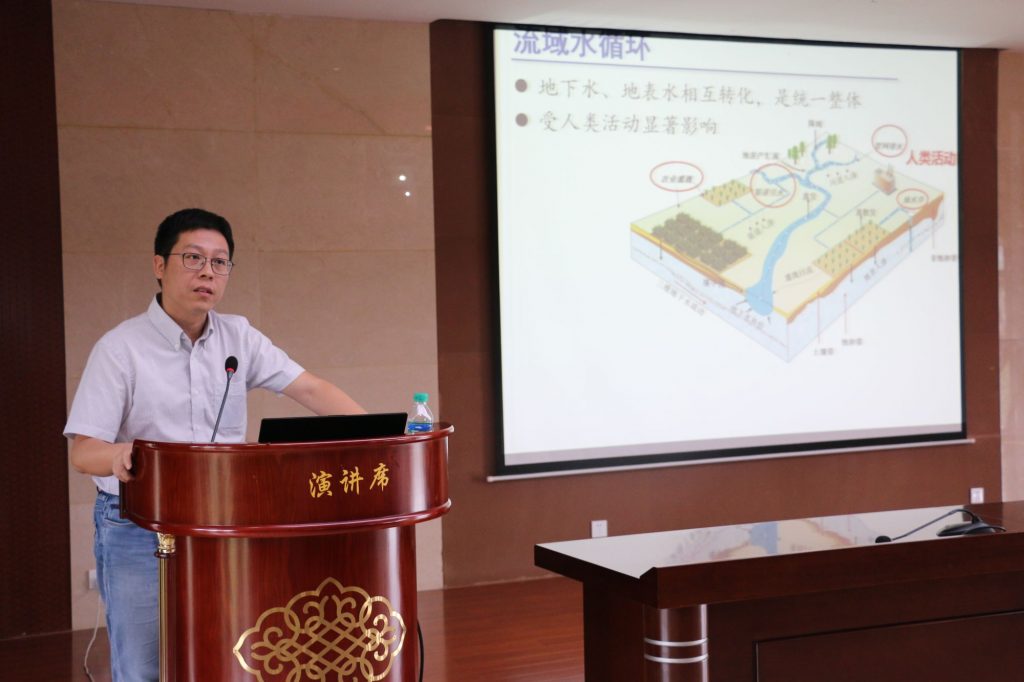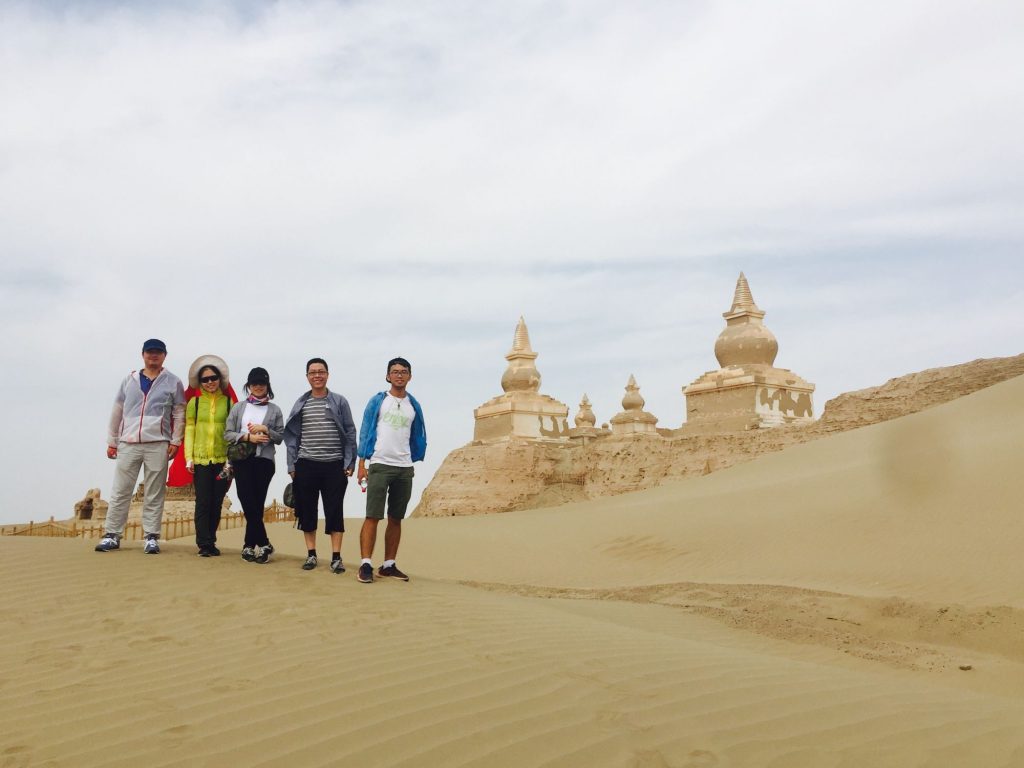“Although I did not go to his class, I often heard my classmates talk about his style, and not taking his class is one of my biggest regrets,” said one student at SUSTech, referring to Professor Zheng Yi.
Professor Zheng Yi is a sought-after teacher at SUSTech and the vice-dean of the School of Environmental Science and Engineering. He has ten years of teaching experience, during which he has developed a teaching style that is unique and interesting. Thanks to his outstanding performance in teaching and education and his important contributions to teaching management, he was awarded the “2017 Outstanding Teaching Award of the Southern University of Science and Technology”. Recently, the Student Press had an exclusive interview with him to explore his teaching approach.
Professor Zheng walked into the office wearing a crisp suit and tie, explaining that he was just taking photos for the university organization. The reporter’s first impressions of the professor are that he is smooth and clean.
“Education can develop a new pattern of life, culminating in the realization of Universal man,” said Tagore, the first non-European to win the Nobel Prize in Literature in 1913.
At the Defense Conference, Zheng quoted Tagore’s words, his eyes shining with passion. “I want to do my best to make the students feel the truth, the goodness, the beauty, the curiosity of nature and have a positive attitude towards life.”
As Tagore was full of love for life, he cherished the interest in education. “The knowledge of undergraduate courses is more basic, and undergraduates can not be expected to become experts after graduation. Helping students lay a good foundation and stimulating their professional interest is the key to undergraduate education.”
How does he capture students’ interests? He believes that “the classroom should not be a one-way street, on the contrary – the key to a productive class is two-way communication”. He is good at providing real-life examples and transforming tedious knowledge into easy-to-understand visualizations. For example, in the “principle and application of” hydrology class, he will evoke childhood stories to explain the “sauce runoff over infiltration, rainfall” mechanism: “It is like when you want to pour soy sauce into a bottle, the funnel is like the soil layer, and if you apply too much pressure, the sauce will not go down the funnel into the soy sauce bottle, it will overflow and spill all over your table”. This kind of examples allow students to understand easily. He also says that “knowledge is like medicine, we sometimes have to put the active ingredients in a delicious sugary syrup to encourage the children to take it”.

Zheng lectures or participates in lectures on principles and applications of hydrology, global environmental issues, environmental science and engineering, literature review and introduction to environmental science. He likes to come up with interesting projects for his students, and designs “environmental protection project bidding” and “environmental dispute negotiation” in his courses. During his first semester at SUSTech, he let the students simulate environmental protection project bidding “, which included not only giving the usual presentation, but also let each students and learning to look at problems from different angles.
The students were very enthusiastic about the way the class was taught, which requires them to master their field more skillfully. This is the second semester’s “environmental dispute negotiation” project, which involves different groups of students in different roles, in a context of conflicts and contradictions where students need to quickly master and use the knowledge they have acquired.
This class form was also warmly welcomedby the students of the School of Environmental Science and Engineering. Li, one of them, said: “We had to do an ‘environmental protection grade project bidding’, starting from a green hand and later becoming an expert. We learned the basic process of project bidding. This project provided me with the knowledge I will need later, so I spent a lot of time preparing it. Of course, the bidding results were good!”.
Zheng Yi describes his class as “Bridging East and West”. He says that American education pays more attention to encouraging students to think independently, and the boundaries of learning are more open.” He studied in the United States, and he saw that the number of elective courses for undergraduates in the United States was usually less than that of undergraduates at home. Zheng Yi says that after-class independent learning is very important and beneficial for students. “I only had two hydrological courses, but every time I had to spend long hours after class to finish my work”. These foreign-inspired methods were his reference during his 8 years teaching at Peking University, as well as here at SUSTech.

Zheng Yi is not only in the classrooms teaching theory and innovation, he is also a professional and leads his students out into the field for practical work, thereby enhancing his teaching effectiveness.
In addition, he has also invested considerable effort in the management of the School of Environmental Science and Engineering curriculum and other aspects. He served as vice dean of the school, responsible for discipline construction and teaching work, and achieved good results in both. During the two years since its establishment, the School of Environmental Science and Engineering has developed very rapidly. There are now two officially approved majors, environmental science and engineering and hydrology and water resources engineering which both include environmental science and engineering’s core subjects.
As vice dean of teaching, Professor Zheng needs to be responsible for the overall curriculum design including the practice of experimental courses, and such. “When we set up a new class, who should teach it? What content should be taught? How should the venue’s equipment be arranged? I am the first person to consider these issues” he explains.
In September 2015, the school opened its first course and it is him who was responsible for its design, as well as for teaching it. In 2016, the School held its first internship in Beijing, with Zheng to credit for most of the implementation. In 2017, still under his planning, the school’s environmental and hydrological students conducted internships in Guangdong, Hong Kong, Macao, Beijing, Tianjin and Hebei. He also led the students to the northwest of the country to study the ecological and socio-economic environment. These practical projects have become a major feature of the school’s characteristics, attracting an increasing number of students every year.
Finally, the reporter asked Professor Zheng to rate his own teaching: “I’d give myself 85%, this score shows that I am basically satisfied with my teaching, but that there is still room for improvement”.
Proofread By
Photo By